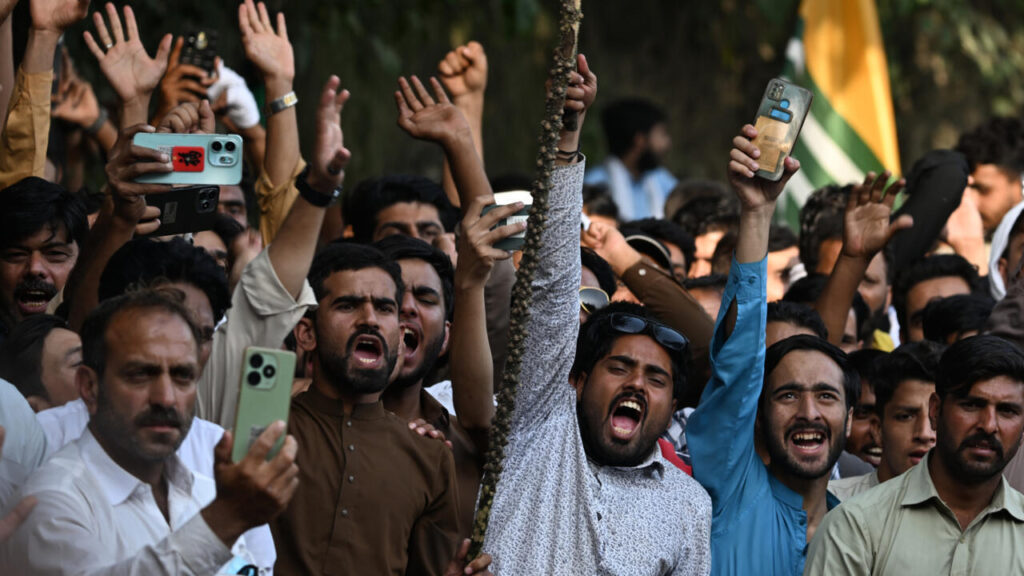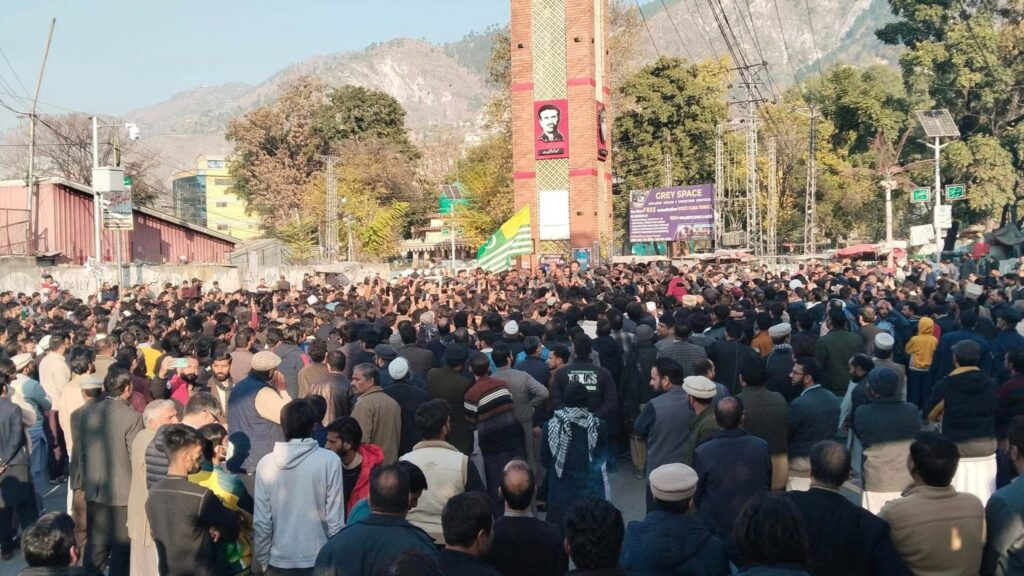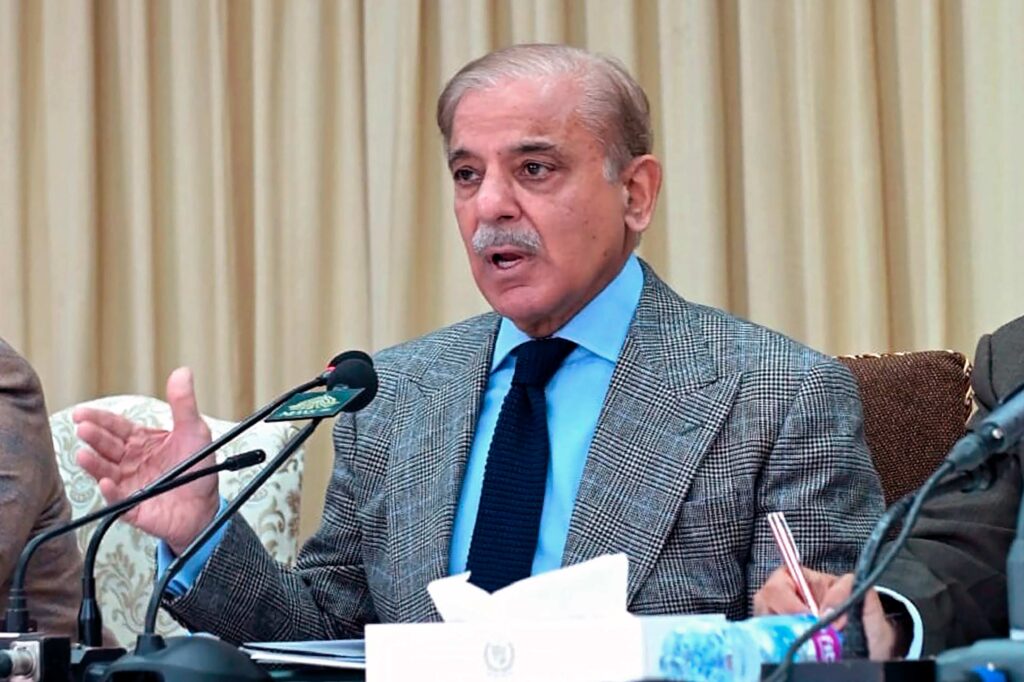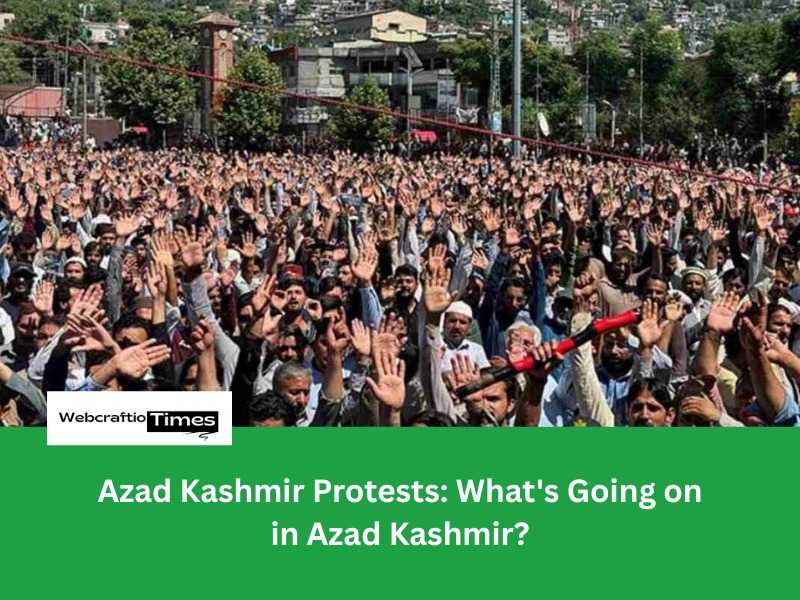Introduction: Why Protests are Rising in Muzaffarabad?
The September 2025 has brought some serious political and social unrest to Pakistan-administered Kashmir, also called Azad Jammu and Kashmir (AJK). What started as a call for economic relief has quickly turned into a violent protests. For almost a week, major cities, including the capital Muzaffarabad, have been completely shut down. Schools, shops, and transport remain closed.
The streets are filled with tear gas. The roads are blocked. Clashes between unarmed citizens and security forces are going on. Lives have been lost on both sides, showing just how serious the crisis has become. At its core, the unrest is fueled by economic struggles, broken political promises, and a strong feeling of being ignored and marginalized.
Prime Minister Shehbaz Sharif has stepped in to calm the situation. He has sent a high-level team to Muzaffarabad to start urgent talks with local leaders. But the big question remains.
Can the government truly solve the deeper issues driving these protests, or these protests will grow big?

This article looks at the whats going on in Azad Kashmir? What are the demands of the people ? How the government is reacting to this conflict, and what this could mean for the future of Azad Kashmir?
Read More : China’s New K-Visa: Changing the Game for Tech Workers Worldwide
Why People Are Angry: Poverty and Broken Promises
The recent unrest didn’t just happen overnight it’s the result of years of growing frustration. The immediate reason for the large-scale “shutter-down” and “wheel-jam” strike was the government’s failure to honor earlier agreements. But behind this, the real causes run much deeper, rooted in economic struggles and political issues.
The Financial Stress on Citizens
Life in Azad Jammu and Kashmir (AJK) has grown harder with Pakistan’s slowing economy and poor local management. People’s main complaints include:
- Soaring Electricity Tariffs
Even though AJK hosts some of the largest hydroelectric power initiatives (for example, the Mangla Dam), people living there state they do not reap the rewards of this natural resource. They receive incredibly high power bills, and the cost has increased significantly due to the nationwide energy crisis in Pakistan. This generates an overwhelming sense of injustice: the region generates the power, yet must pay exorbitant rates for it.
- Lack of Subsidies
Protesters demand an immediate restoration of subsidies on essential commodities, particularly wheat flour. Food insecurity and the rising cost of living have pushed thousands of families to the brink.
- Inflation and Unemployment
Like the rest of Pakistan, AJK has grappled with high inflation. Compounding this, the region faces severe unemployment, particularly among educated youth, who feel they have been left with no future by the current system.
The Joint Awami Action Committee (JAAC) a powerful, organic alliance of traders, students, lawyers, and civil society groups, has successfully channeled these economic woes into a unified mass movement.
The Demand for Political Justice: Unveiling the 38-Point Charter
While economic relief may be the immediate goal, the JAAC’s movement is fundamentally a rights movement. Their 38-point charter of demands goes far beyond mere subsidies, aiming for a structural overhaul of governance in the region.

The key political demands are:
A. Ending Elite Privileges
Protesters demand the immediate abolition of the vast and costly privileges enjoyed by the regional political elite, including ministers, officials, and former office holders. This includes a review of perks, allowances, and large expenditures that the public views as an unfair drain on the impoverished region’s budget.
B. The Controversial ‘Refugee’ Seats
Possibly the strongest political sticking point is the demand to abolish the 12 reserved seats in the AJK Legislative Assembly. These seats are assigned to representatives of the refugees who fled the Indian-administered side of Kashmir and are currently in Pakistan.
Demonstrators argue that these seats are now being used by Pakistani political parties to exert their influence over or overturn the local AJK government, thereby stripping the so-called autonomy of the region away. They are prejudging this as an element of a political past that systemic powerful actors have been able to use from Islamabad to manipulate the local governance Schemes. Given that these seats are part of the constitution of AJK, this is one of the hardest demands for the government to meet without major legislative change.
C. Full Utilization of Local Resources
A core demand is for AJK to have full control and receive fair compensation, or a “royalty,” for the vast water and power resources generated from the region’s hydroelectric projects. This is framed as a demand for a greater share of the region’s resources for the local populace.
The Descent into Violence: Deaths and Communication Blackout
The current wave of protests, which began with a peaceful, region-wide strike on Monday, September 29, quickly turned confrontational:
- Clashes and Fatalities
As protesters attempted to enforce the shutdown and march toward Muzaffarabad, they were met by heavy security deployment, including paramilitary Rangers and local police. Clashes erupted at key entry points, such as the Neelum Bridge.
- The Toll
The violence led to the tragic deaths of at least nine people, including six civilian protesters and three police officers. Reports from the JAAC claim the civilian death toll is higher, with many injuries from tear gas and gunshot wounds.
- Government Crackdown
In order to control the growing unrest and prevent the movement from rising, the AJK authorities imposed a near total communications blackout. Mobile phone, internet and even landline services were shut down, essentially locking the territory down. This has been criticized by human rights organizations like Amnesty International who claim that the blackout restricts the right to information and freedom of peaceful assembly.
Read More : Israel Intercepts Global Sumud Flotilla, Detains Hundreds of Activists
Pakistan’s Urgent Response: Dialogue Under Pressure
With a key region completely paralyzed, the federal government in Islamabad had to take action. Prime Minister Shehbaz Sharif voiced his worries, saying that violence wouldn’t solve anything and calling on both sides to exercise restraint.

In response, his administration quickly sent a top negotiation team made up of senior federal ministers and leaders from the ruling party to Muzaffarabad to kick off discussions again with the JAAC.
The government’s strategy is clear:
- De-escalation: Immediately halt the violence and lift the communication blackout.
- Concession on Economics: Reaffirm its commitment to implement subsidies on flour and reduce electricity tariffs, fulfilling the economic promises made during similar protests in May 2024.
- Investigation and Aid: Order a transparent investigation into the deaths and injuries and announce financial assistance for the victims’ families.
- Dialogue on Political Reforms: Engage the JAAC on the core political demands, while insisting that issues like the reserved seats require careful constitutional and legislative processes.
The JAAC, however, has set an initial condition for full-scale talks. The immediate arrest and exemplary punishment of the security personnel responsible for the deaths of the unarmed protesters.
Geopolitical Ramifications and Future Outlook
The turmoil in AJK has implications that reach beyond Pakistan’s borders, casting a shadow over regional stability.
- India-Pakistan Dynamics
For years, Pakistan has been the primary voice raising concerns over the status of Indian-administered Kashmir. The massive, internally generated Kashmir’s protest, however, undermine Pakistan’s moral standing and provide its rival, India, with political leverage. Indian officials and media have been quick to highlight the unrest, arguing it demonstrates widespread local dissatisfaction with Islamabad’s governance.
- A New Rights Movement
The JAAC is a unique political group that’s all about rights and accountability, and its rise shows a big change in the political landscape. People seem to be more aware and are starting to push back against the traditional powers in Pakistan, especially against what they see as exploitation by the establishment. They’re fighting for dignity, improved governance, and a stronger voice in shaping their future, which is a call for change that’s echoing in other movements throughout the region.
The success of the high-level talks will depend entirely on the government’s willingness to move beyond temporary financial fixes and commit to the structural political reforms demanded by the people. As the days of the strike turn into weeks, the window for a peaceful political solution is rapidly narrowing. The voice of the people in Pakistan-administered Kashmir has risen to a deafening roar; ignoring it is no longer an option.
Faqs
1. Who is leading the current protests in Pakistani Kashmir?
The protests are primarily organized and led by the Joint Awami Action Committee (JAAC), an alliance of civil society activists, traders, students, and lawyers who are challenging the regional administration.
2. What are the main demands of the protesters?
The main demands focus on two areas:
- Economic Relief: Subsidies on essential commodities like wheat flour and a significant reduction in electricity tariffs.
- Political Reforms: Ending special privileges for the ruling elite and the abolition of the 12 reserved seats in the AJK Assembly for refugees, which are seen as political manipulation by Islamabad.
3. What has been the human cost of the unrest so far?
The clashes between protesters and security forces have resulted in multiple casualties. According to official reports, at least nine people have been killed, including three police officers and six civilian protesters, with more than 150 people injured on both sides.
4. How has the government in Pakistan responded to the crisis?
Prime Minister Shehbaz Sharif dispatched a high-level negotiation committee to Muzaffarabad to open talks with the JAAC. The government has also called for a transparent investigation into the violence and urged security forces to exercise restraint.
5. Why was there a communications blackout in the region?
Authorities imposed a near-total communications blackout (suspending mobile and internet services) across AJK starting around late September. Officials stated this was necessary for “security reasons” to contain the spread of the violent unrest and prevent the communication of protest activities.



